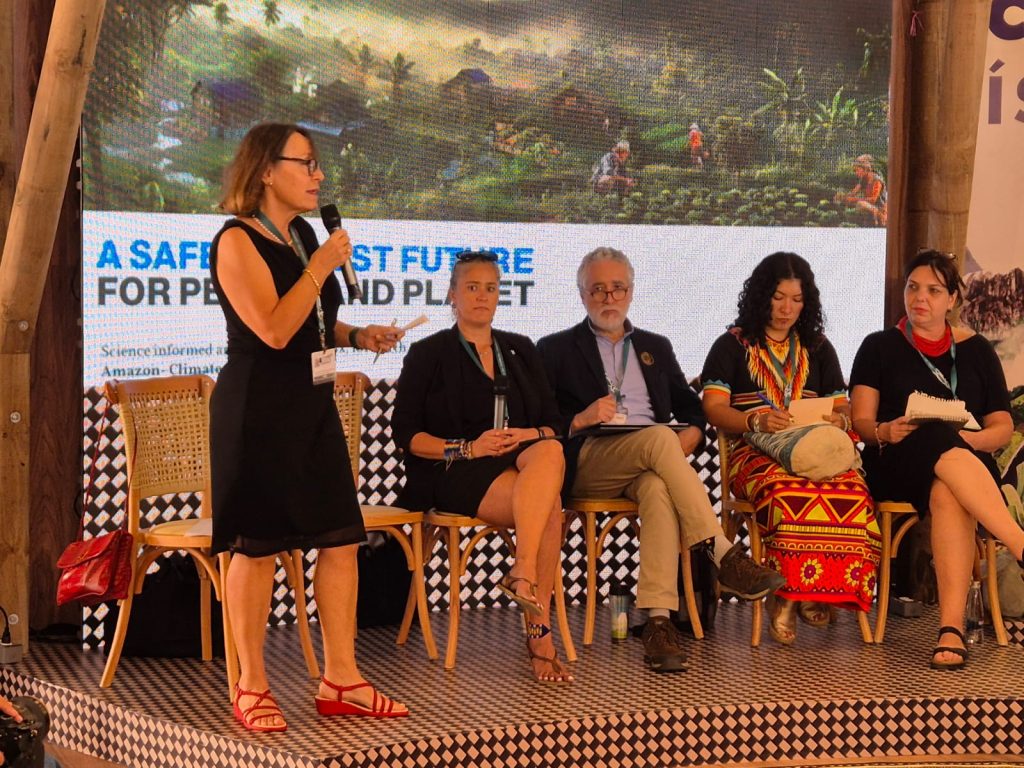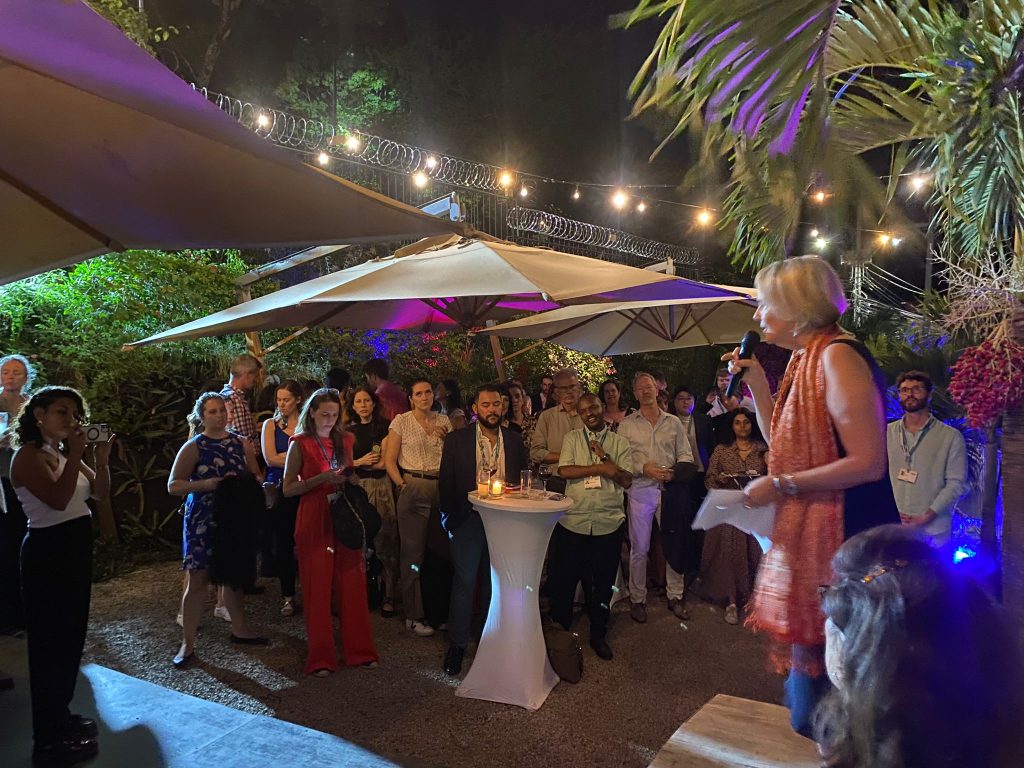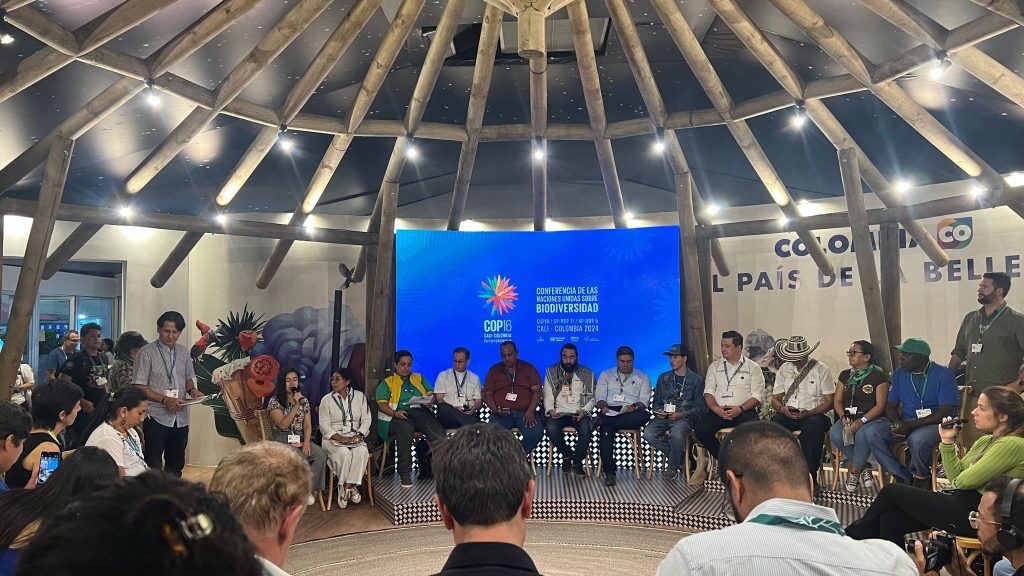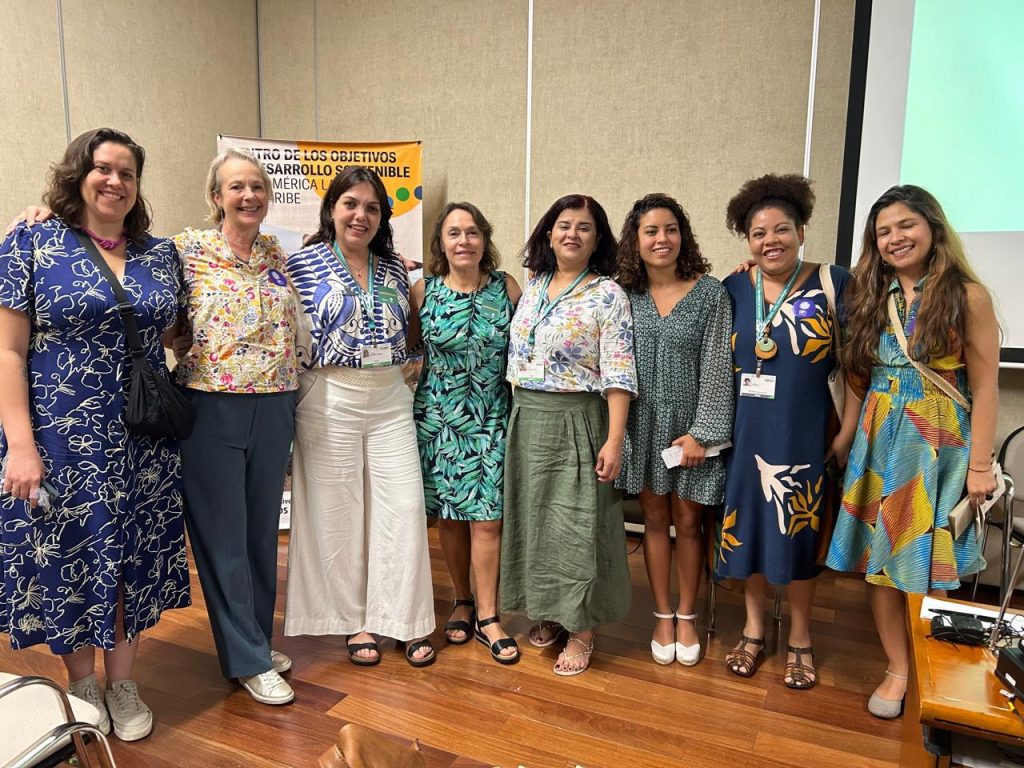Cali spotlights collective action despite outcome
The Global Commons Alliance – Accountability Accelerator, Earth Commission, Earth HQ, Science Based Targets Network and Systems Change Lab – gathered in Cali, Colombia last week, for the 2024 UN Biodiversity Conference of the Parties to the UN CBD (COP16).
Despite a deeply disappointing outcome from the negotiations, especially on finance, what we saw in the various side events happening around Cali made clear that civil society, businesses and the communities working together to tackle nature loss and restore biodiversity are gaining momentum. As we move into COP29 and the tense end of a pivotal election year, now is the time to harness that collective energy for the systems change we need to accelerate.

While outcomes from COP16 fell short of what was needed – no new finance mechanism was agreed, and most countries did not submit their biodiversity plans – there were some rays of hope. A voluntary fee on Digital Sequencing of Information (DSI) was agreed. This fee is essentially a payment—to be made by pharmaceutical, agricultural and other companies for the nature they use in their products—into ‘the Cali Fund.’
A first-of-its-kind formal subsidiary body for Indigenous Peoples was also created, so that they can play an official role in future negotiations. The crucial role of Indigenous Peoples and local communities (IPLC) as stewards of the global commons was platformed more than ever before at this COP. We were honoured to be able to hear and learn from these key voices in our events, such as the Accountability Accelerator’s session on the importance of protecting Indigenous Peoples’ rights to halt biodiversity loss and address the impacts of transition mineral extraction, and in a workshop exploring how stakeholders can support corporate accountability in meeting Global Biodiversity Framework (GBF) targets – with IPLC playing a key role.
SAFE AND JUST ACTION
The Accountability Accelerator opened the first week of COP with a panel showcasing groundbreaking accountability tools and technologies that are driving corporate nature and climate action in Africa, Indonesia and Latin America. The session showcased how local organizations are leveraging innovative platforms to promote transparency and corporate responsibility, including through Southern Africa Resource Watch, Auriga Nusantara and Fundación Avina.
Further spotlighting action in Latin America and beyond, the Earth Commission explored the applicability of the Safe and Just Earth System Boundaries in the region. Panelists including Earth Commissioners David Obura, Juan Camilo Cardenas and Laura Pereira and Dayana Domicó, Indigenous Peoples Forum of IFAD, and Rafaela Danielli Nicola, Wetlands International Brazil, discussed how the Safe and Just Boundaries can be integrated into policy to support the implementation of the GBF. Speakers highlighted how Indigenous leaders are informing and influencing scientific research, so that traditional knowledge can be integrated with ‘Global North’ science approaches.

NEW COLLABORATION
We hosted a special evening reception to share the collaborative opportunities underway within the GCA, and to officially launch our new 2025-2030 strategy. Together with Margarita Astralaga, our Chair, Jane Madgwick introduced our 2030 ambition and the four bold goals of our strategy to create the conditions for systems change and enable us all to safeguard the global commons. We also shared stories about bold change throughout history, which remind us that the massive societal shifts we need for a healthy, safe and just future, are possible to achieve. You can explore our strategy online in English and Spanish.
Margarita Astralaga, Chair, the Global Commons Alliance, said: “The GCA organized a variety of events that attracted diverse audiences and we participated in many others. This was a great success. We strengthened some of our existing partnerships and started forging new ones. I am proud of being part of this great team which made sure to inform participants about the importance of the global commons and working toward an inclusive safe and just future for humanity.”

NATURE ACTION IN CITIES
On October 27 we attended the Urban-Nature Programme Mayors’ Leadership Forum, where Razan Al Mubarak, president of the International Union for Conservation of Nature and UN Climate Change High-Level Champion, highlighted the inaction on just-economic-prosperity, and the urgent need for synergy on climate and nature action in cities.
The session also underlined the relevance of GCA’s plans with a group of Nordic cities to understand what it means for cities to operate within the Safe and Just Boundaries – as several mayors as well as development banks highlighted the need to bring nature more centrally into city economic development.
Later in the week a separate Science Based Targets Network (SBTN) event explored how cities can translate global biodiversity goals into actionable local targets, to ensure cities contribute effectively to biodiversity conservation and restoration.

TRAIL-BLAZING COMPANIES
On October 30 the SBTN presented key corporate insights and the latest results from its year-long target validation pilot in the Nature Positive Pavilion, hosted by the Nature Positive Initiative. Here the SBTN announced that the first set of companies had publicly adopted science-based targets for nature, beginning with freshwater and land. This is a significant milestone in advancing ambitious and measurable corporate action on nature, following SBTN’s year-long pilot program with a cohort of companies trialling the targets.
Natasha Milan Matic, Executive Director, the Accountability Accelerator, congratulated the pilot companies and SBTN team during the session, stating: “This is a major step forward in the right direction.” During the joint event, the Accountability Accelerator, as the new host of target validation, unveiled its plans for upcoming target validation services.

COLLECTIVE ACTION
While COP16 enabled countless positive connections and events to take place, the stalled negotiations may have a negative impact on the upcoming COP29 climate talks in Baku, Azerbaijan. If there is no finance deal in Baku, the new Nationally Determined Contributions (NDCs), which are countries’ climate plans in line with the Paris Agreement, and due for submission by February may be affected as developing nations rely on financial support to boost their ambition and break free from fossil fuels.
COP16 in Cali left a lasting impact on many of our team who attended, living up to its name as ‘the people’s COP’: almost 1 million local people visited the Green Zone, which was also the first time the biodiversity COP has ever hosted one.
Margarita Astralaga concludes: “It was amazing to see how active Indigenous Peoples and campesinos were, as well the more than 3,000 representatives from the global private sector, and 800 from the Colombian private sector. 23,000 people were part of the COP, and I’m really proud of my local government in Cali as well as the Valle del Cauca and the national government for hosting the meeting there in such a successful way.”
The Global Commons Alliance thanks all partners and friends of the Alliance, old and new, for joining us at COP16, and we look forward to continued collaboration with you.

Get our updates
Sign up for our free bi-weekly newsletter
